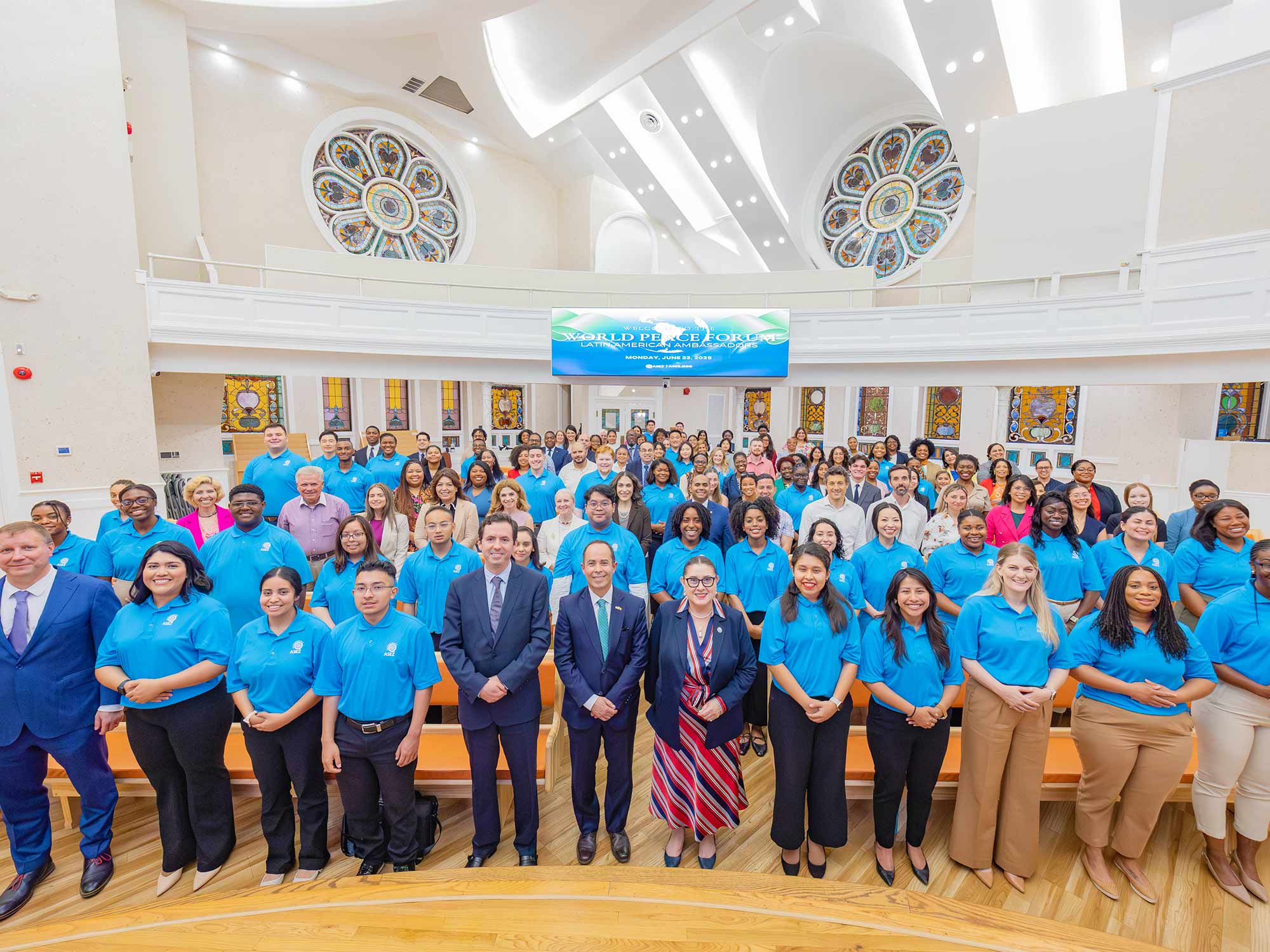On Monday, June 23, the Washington, D.C. Branch of ASEZ hosted the Latin American and Caribbean Ambassadors Peace Forum, the first installment of ASEZ’s new World Peace Forum Series. The event united representatives from Latin America and the Caribbean with students, professionals, and community leaders to exchange insights on how diplomacy, youth leadership, and solidarity can serve as catalysts for building a peaceful and sustainable future.
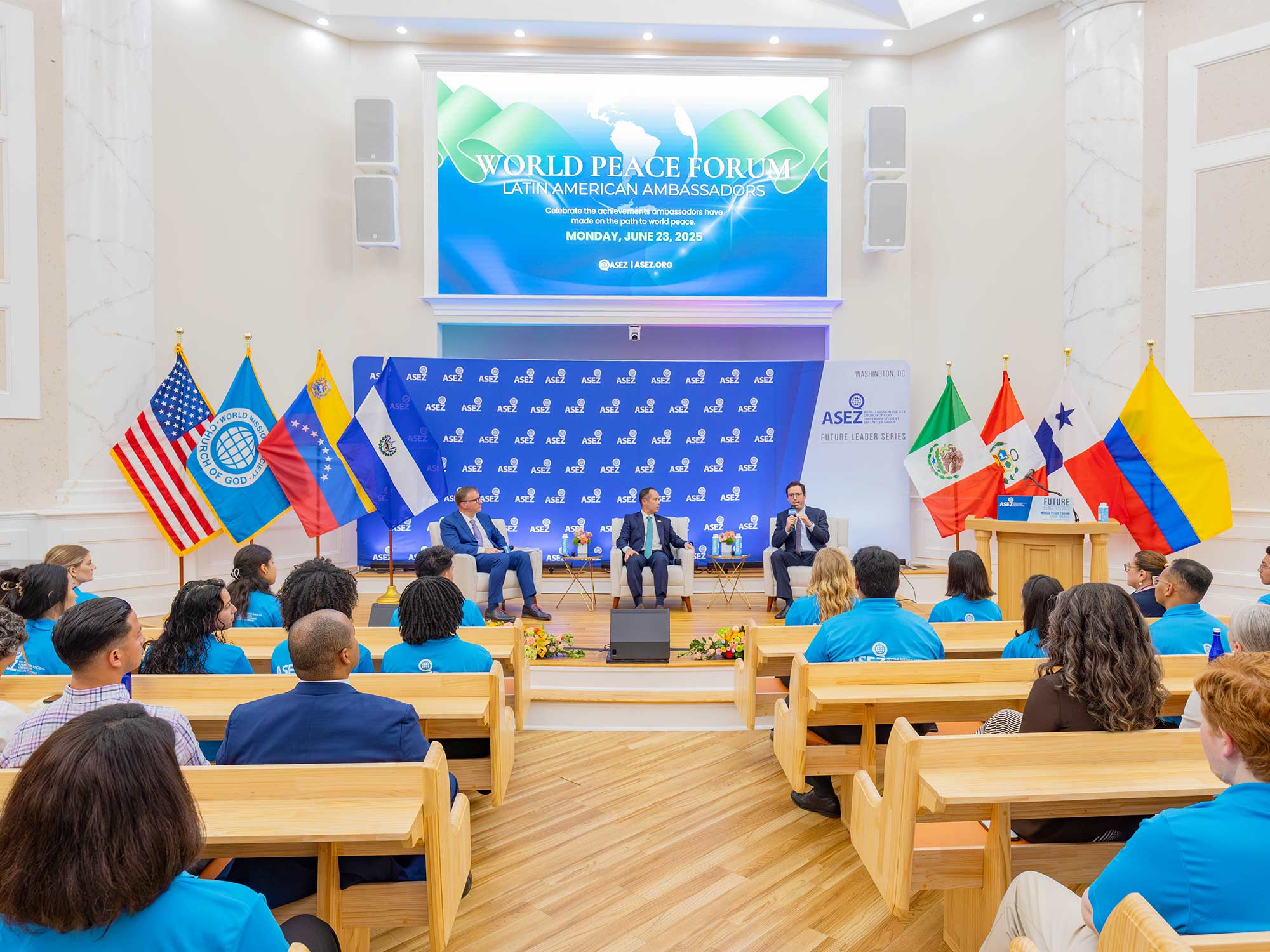
The event opened with a warm welcome from the branch manager of the World Mission Society Church of God in Washington, D.C., followed by a video that spotlighted global crises such as conflict, inequality, and climate instability, underscoring the urgency of change. The presentation also introduced ASEZ’s mission and global volunteer efforts, especially how university students are working to shape the future with the heart of a mother.
The forum’s tone was further elevated by keynote speaker Mary Ann Gomez Orta, President and CEO of the Congressional Hispanic Leadership Institute. In a heartfelt address, she shared her personal journey as a daughter of Mexican immigrants and reflected on the values instilled in her by her parents’ hard work, faith, and public service. Her message encouraged the youth in the audience to pursue leadership not for recognition, but for the opportunity to uplift their communities.
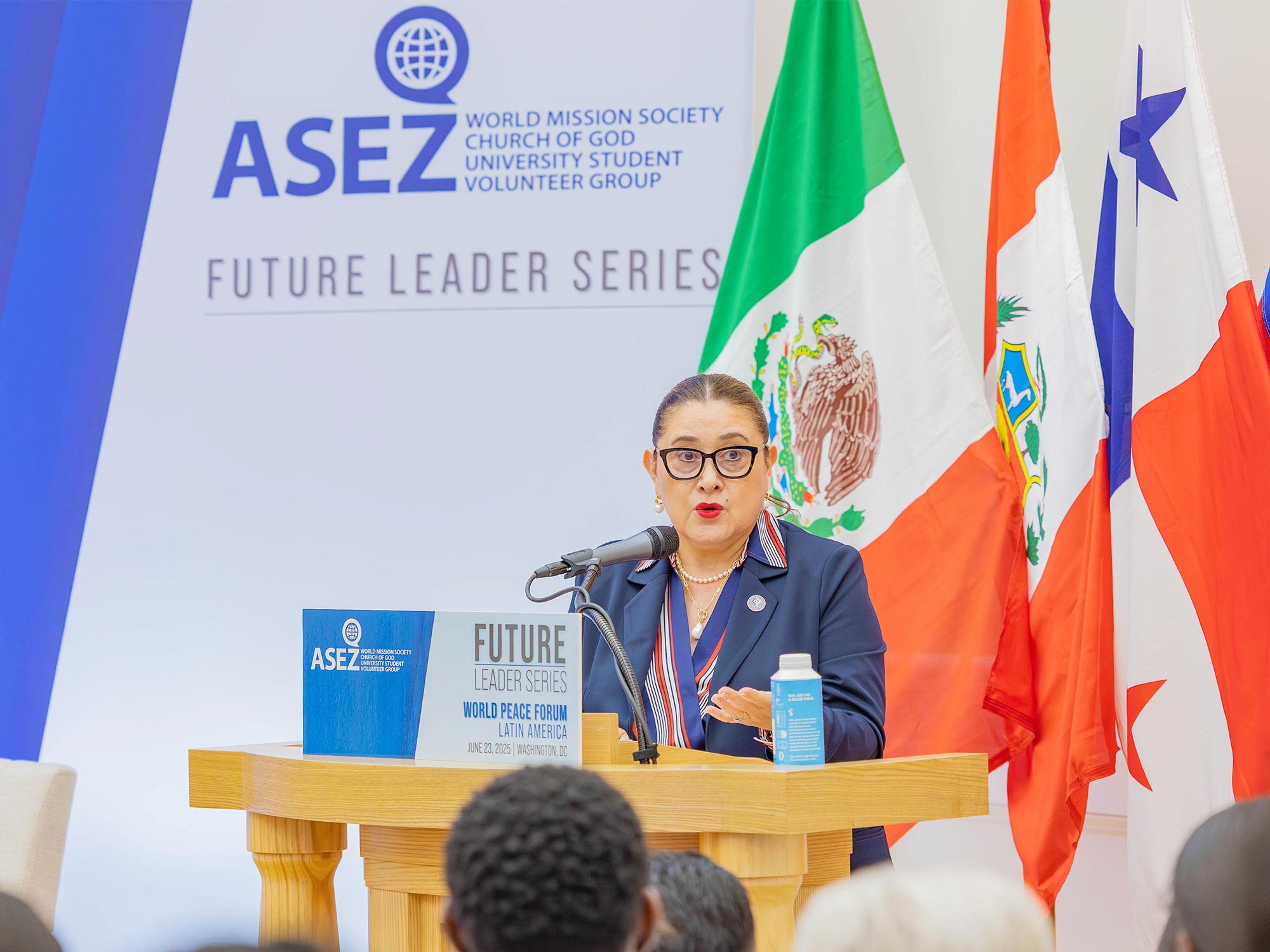
The highlight of the evening was the panel discussion, moderated by U.S. Air Force Staff Sergeant Eric Neilson.
The first panelist, Daniel Camacho, Deputy Chief of Mission at the Embassy of Colombia, spoke on the importance of diplomacy, grassroots engagement, and listening to diverse voices. He remarked:
“We see the news today what’s happening it’s really an unsettled world everywhere you look. So, the more we do in that part of diplomacy, the better. The conversations we have with different factors are not necessarily only governmental sources, but also civil societies, important businesses, and all kinds of actors are really important to engage. And I think by engaging, you’re going to find many answers to the problems that we face nowadays. So always be active on that and go back to the basics: listen and understand what people are trying to tell you.”
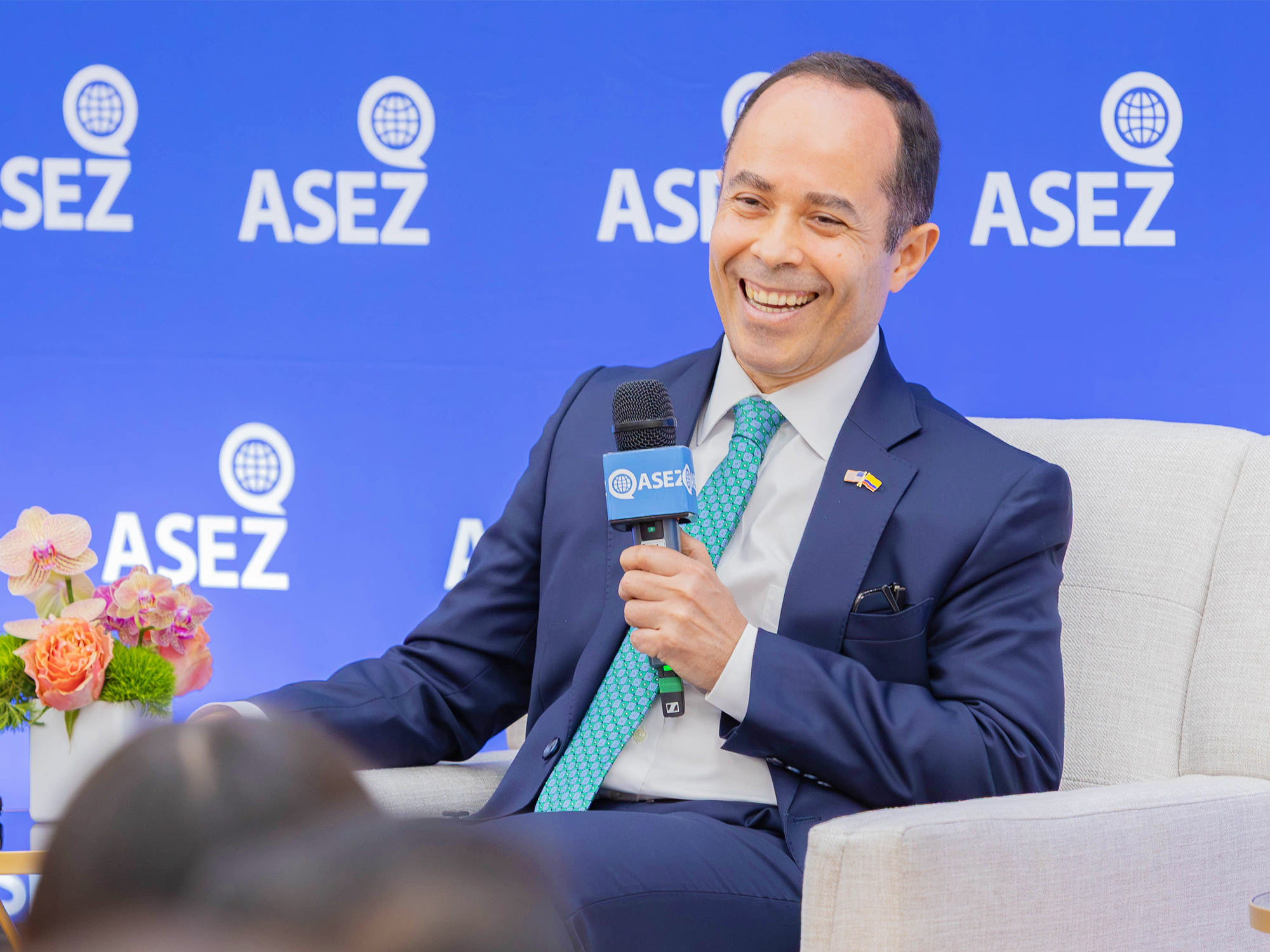
He praised ASEZ’s role, saying:
“One important issue that we place of value is the people-to-people ties. And being here tonight with you what you do everywhere, in every country, and what ASEZ does I think really relates to what we try to do. You’re trying to build relationships and what you do in representation of the organization and different countries, that’s what makes it a better world. And always be present and believe in what you do and what you are and that’s what we try to do in the bilateral relationship that we continue to work on every day.”
Next, Felix A. Quintero Vollmer, Latin American and Caribbean Counsel at the World Bank, offered a compelling perspective on the challenges facing the region. He discussed the critical need for sustainable development and social investment:
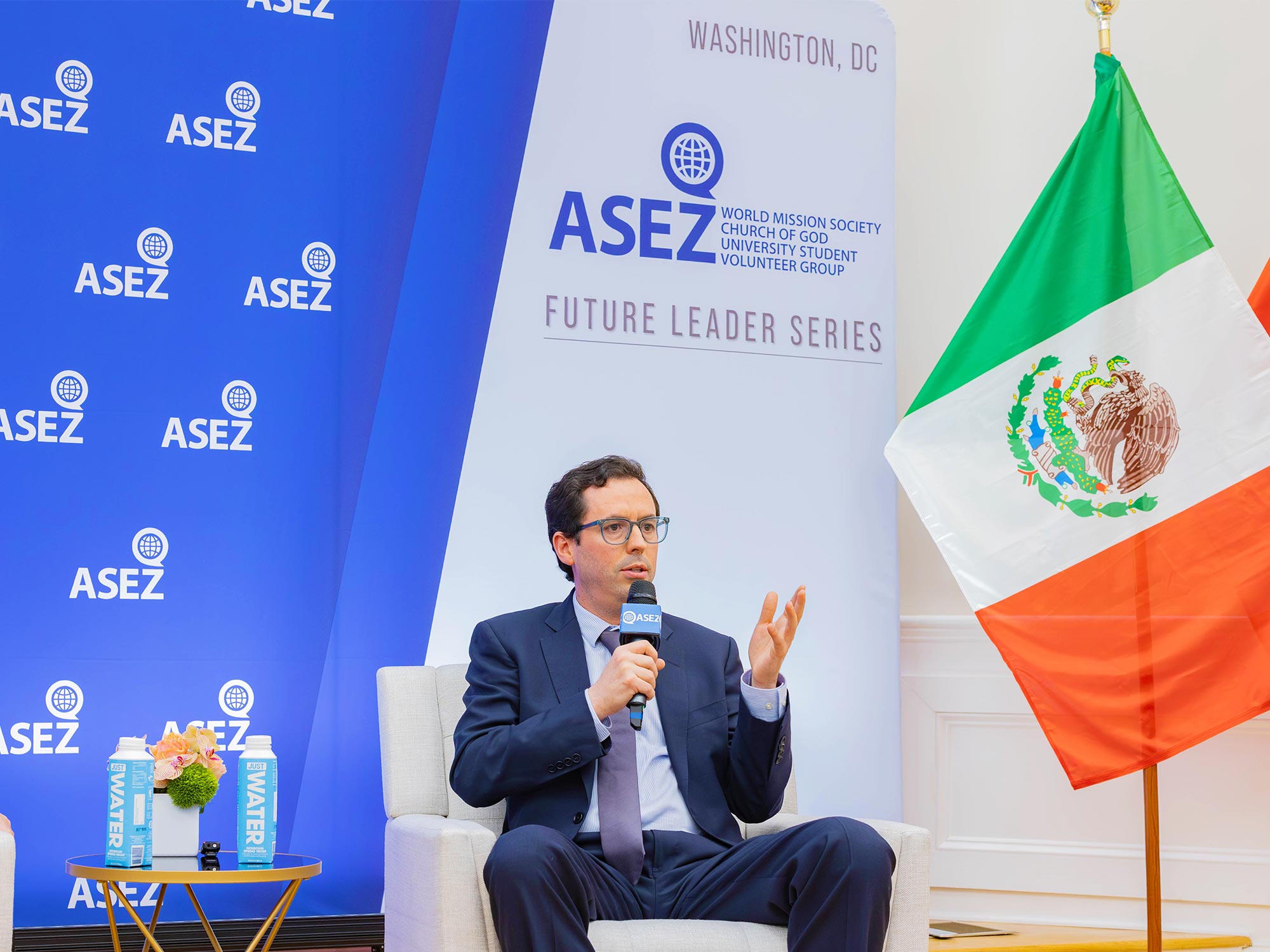
“The social and economic gaps that’s certainly a huge challenge, and we are trying to work to close that gap by investing in things like education, because we are concerned that things like technology and AI could widen the gap.
He also addressed broader governance issues and citizen security: the rule of law, accountability, and fighting impunity. “A second challenge that arguably is regional citizen security… the rule of law, accountability, and fighting impunity. That’s a challenge, and that manifests differently in different countries.”
Both panelists emphasized the importance of intergenerational collaboration and encouraged students to explore fields like international affairs, journalism, and public policy to drive positive global change.
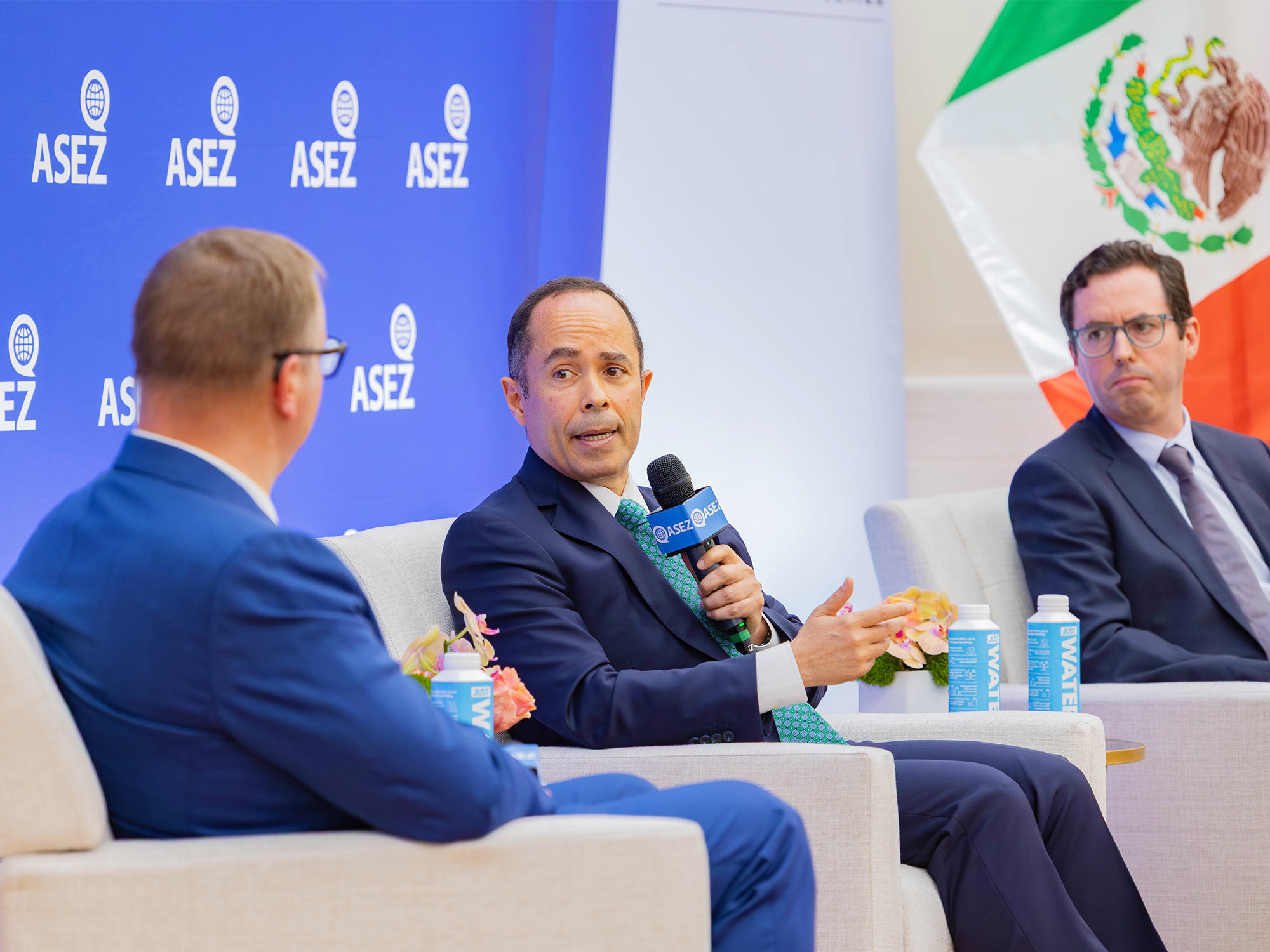
The event was also honored by the presence of several distinguished guests and high-level dignitaries, who expressed their support for ASEZ’s peacebuilding mission and the essential role of young people in sustaining it. After the forum, participants took a commemorative group photo, reaffirming their commitment to continued cooperation for peace.
One ASEZ student reflected:
“What moved me the most was hearing from leaders who are walking this path right now who’ve gone before us, sacrificed, and opened doors we now get to walk through. Because of them, we can carry this message of hope with more strength and clarity.”
University students and members of the audience left the event, realizing that cultivating peace is not an abstract goal, but a daily commitment within their schools, communities, and future careers.
This forum not only celebrated the power of diplomacy and education but also served as a heartfelt reminder: Peacebuilding begins with people those who came before us, those working today, and the rising generation determined to carry the mission forward. Through events like these, ASEZ continues to model how intergenerational cooperation and youth leadership can transform global challenges into opportunities for unity, compassion, and change.
